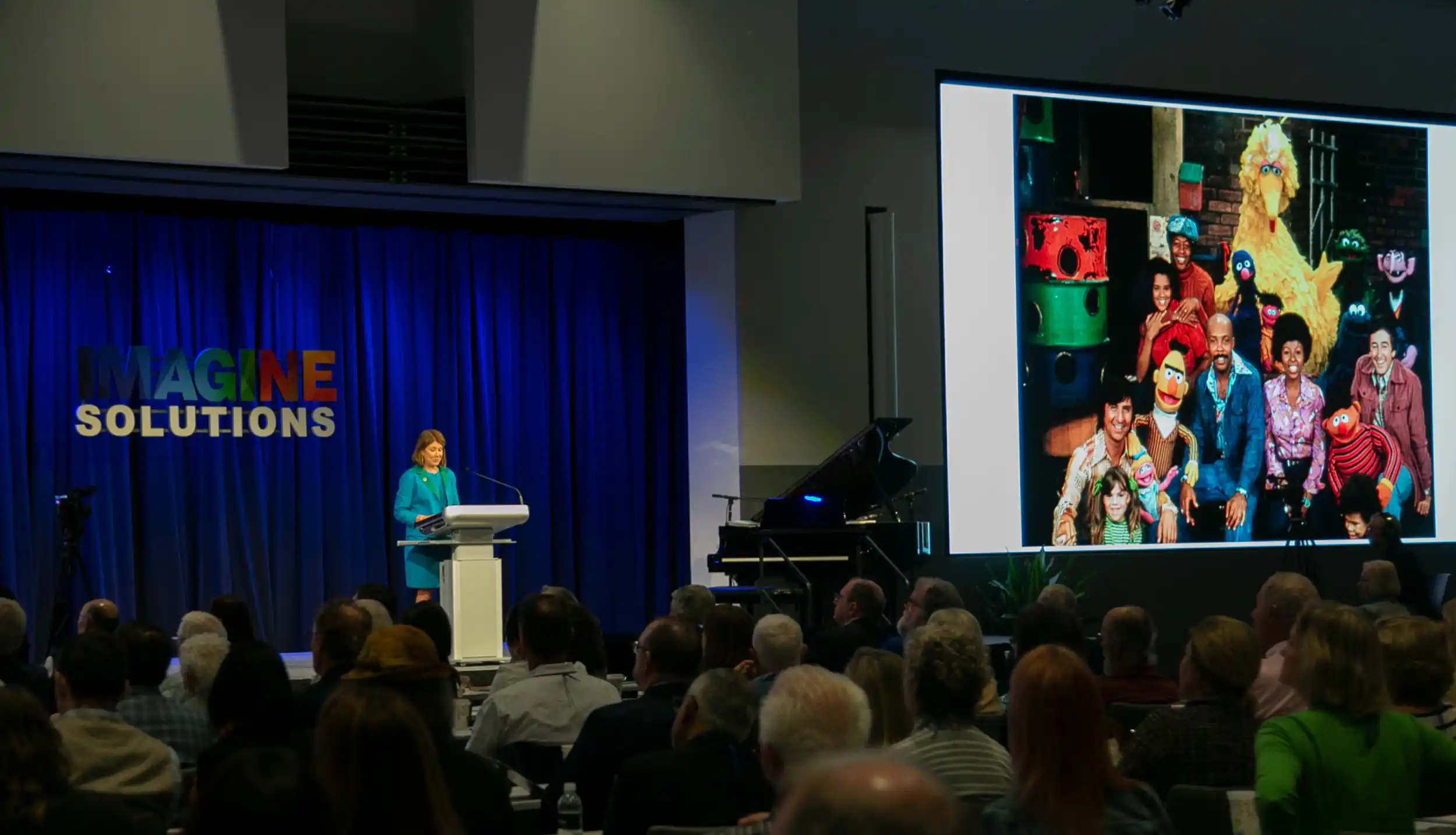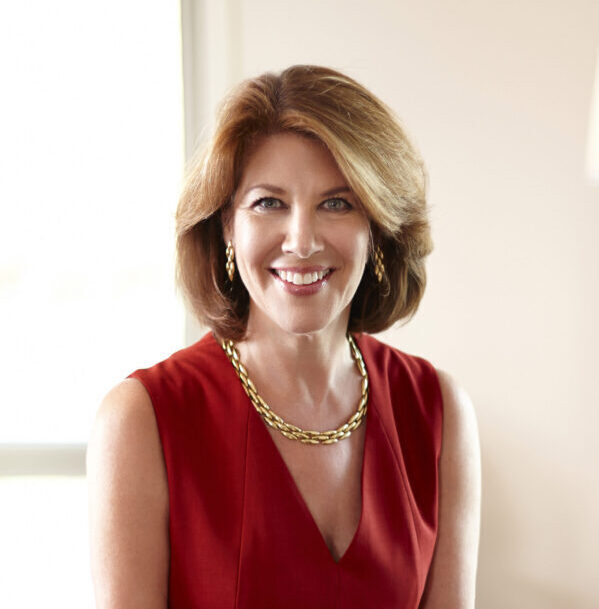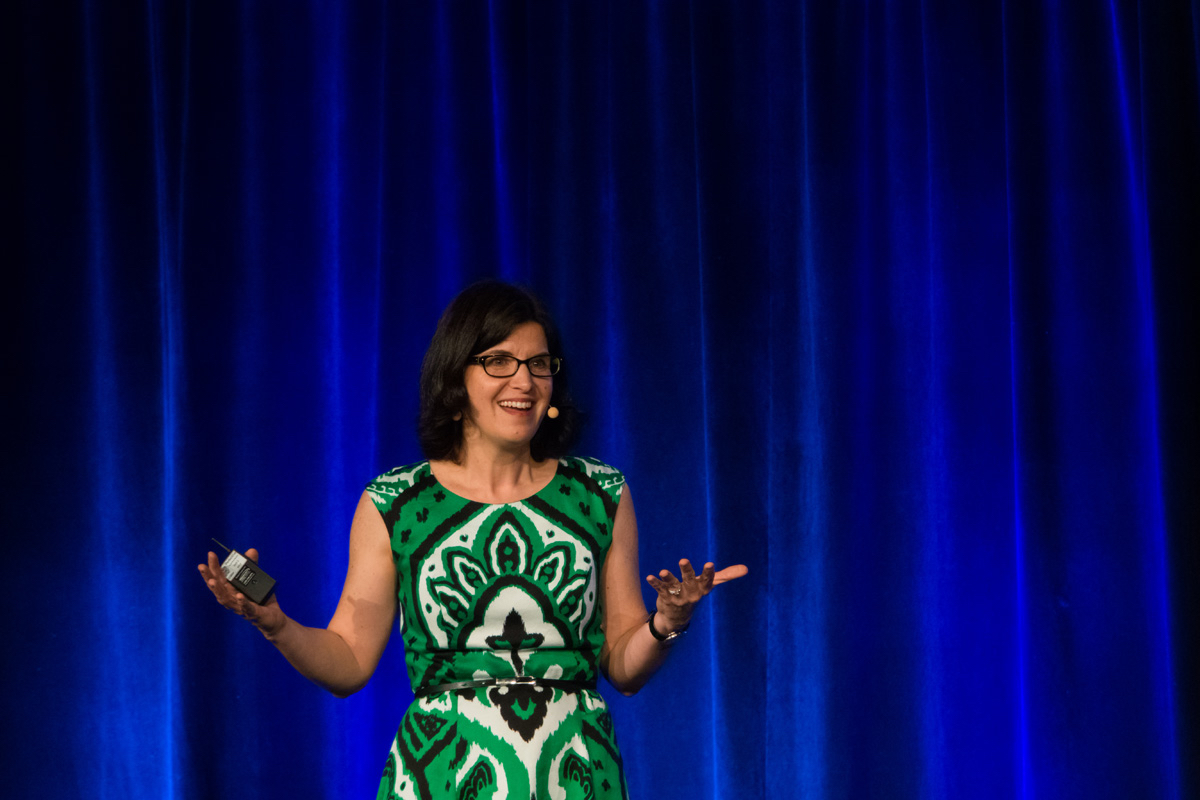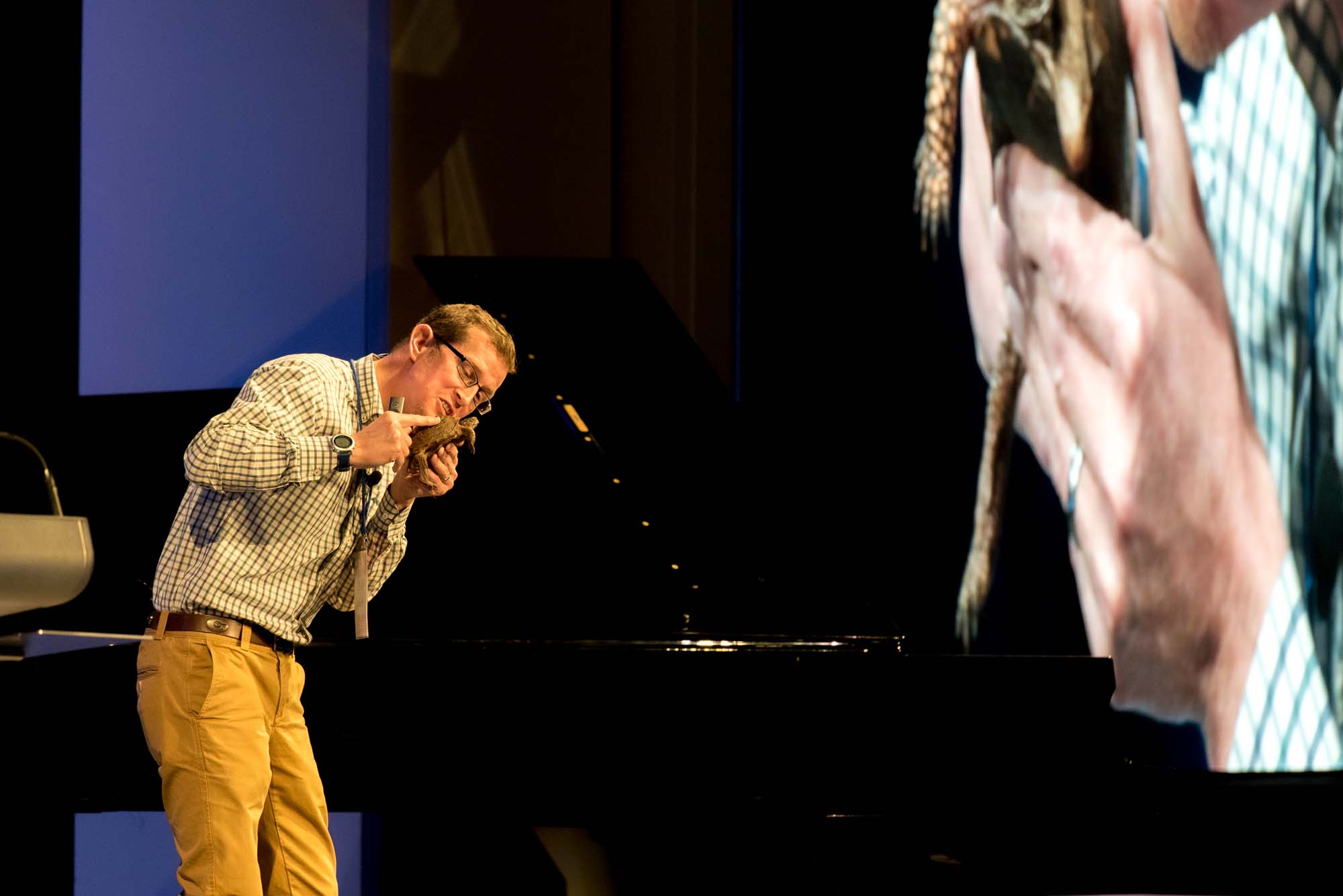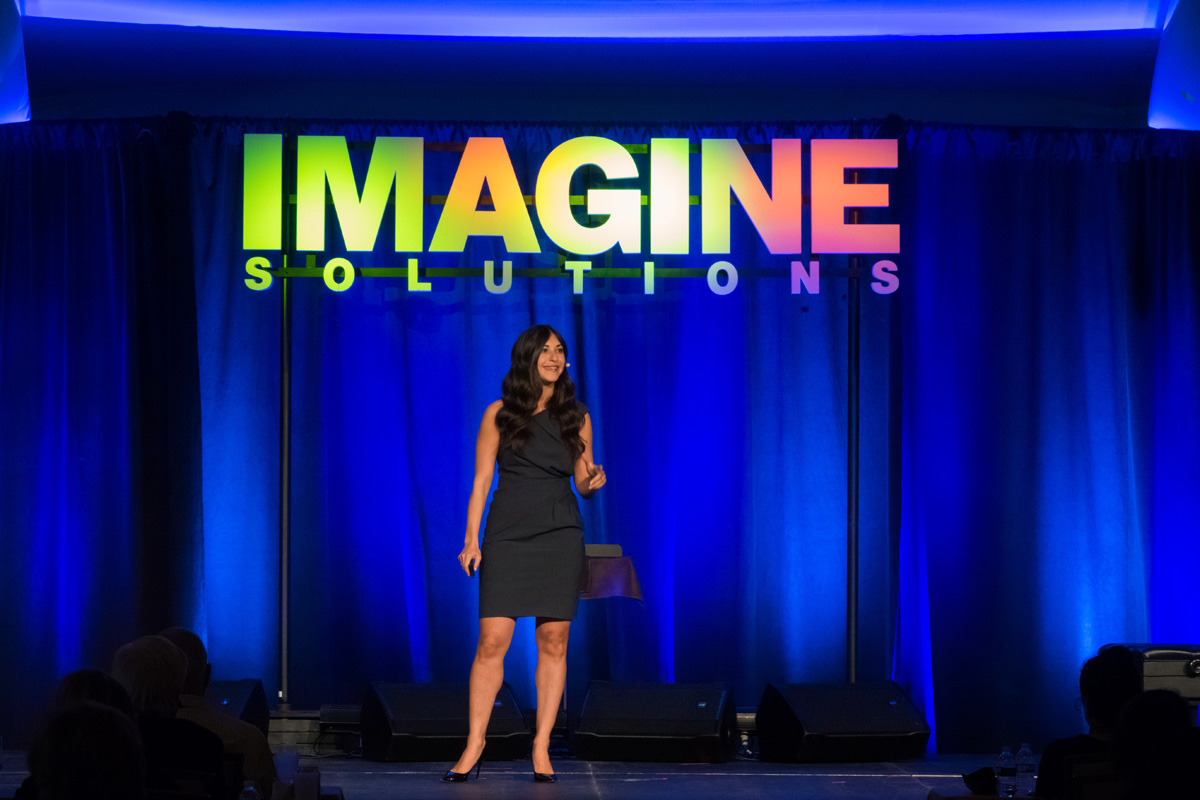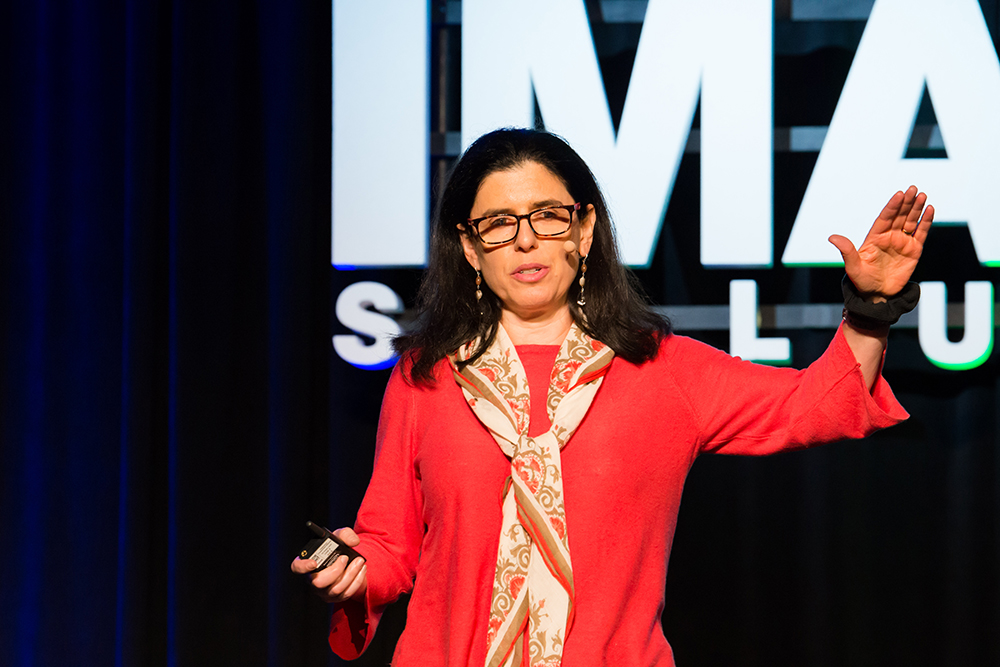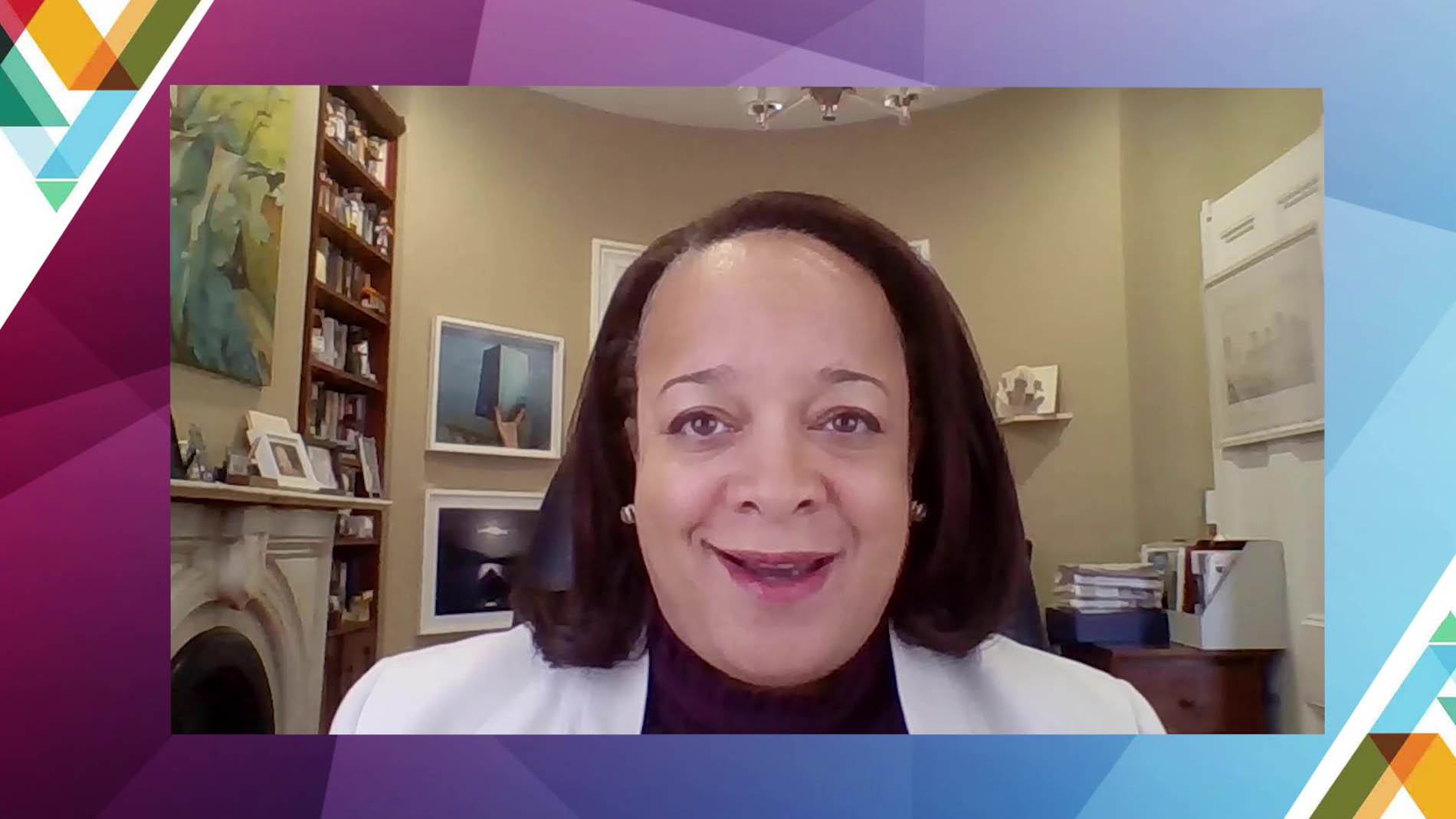Sesame Street’s positive influence on half billion children in 150 countries
00.00
foreign [Music] [Music] [Music] declares unconditional war on poverty in America the 1960s witnessed an America crying out for Change and the timing was just right to explore new ways to change the way things were and start imagining how they might be children of poverty were definitely falling behind then we wanted to bring poor children some of the advantages
01.00
that middle class children had in education so she had this cockamami idea of doing an entertainment show for preschoolers that had commercials for letters and numbers and created the non-profit Corporation the children's television Workshop presents Sesame Street the kids will love it count with me all together ready one two three gee Bert you mean that I have more pizza here yeah Sesame Street was an overnight success as soon as we saw we could teach the minimum which was letters and numbers we said well surely we can do more my face is different my hair is different but I am I am somebody I am black what that's it Sesame Street is proven that's a powerful medium of Television can be a tool to help build young lives up rather than tear them down word
02.05
I Street has had a long history of looking at difficult issues affecting children always from the child's perspective when people die for instance when Mr Hooper died Sesame Street chose to tackle that head-on and help children understand loss and even death for five decades Sesame has continued to help children through tough challenges for breaking down stigma around HIV and AIDS in South Africa to addressing the impact of homelessness on families in the United States so sad we don't have our own apartment anymore The Muppets are absolutely Universal and Sesame street addresses the needs of children whatever they may be hi Julia I'm big bird nice to meet you on Sesame Street Julia has become the face of a truly pioneering initiative to bring increased education and acceptance around autism
03.02
she's just a little differently Vivian's an amazing kid and with Julia she's able to engage in a way where she sees herself [Music] you're so creative to have my daughter Vivian have a representation and for her to be known and seen and more likely to be accepted Yes means the world to us millions are experiencing the worst humanitarian crisis in decades and nearly half are children we knew we had a role to play so with the incredible support of the MacArthur Foundation and the Lego foundation with our partners at the IRC in BRAC Sesame is creating the largest Early Childhood Intervention in the history of humanitarian response [Music]
04.02
stability Sesame is planting the seeds for societal change while we started our mission with just the show we now have so many broader ways of reaching kids and using media to fulfill our mission and I think that there's so much impact that we can have and there's so much opportunity to make a difference and make a better world going forward [Music] hi hi Thomas thank you for helping children everywhere grow smarter stronger and kinder [Music] thank you so much well thank you Tyler and I want to thank Randy in particular for inviting me here it's such a thrill to be here and I'm so
05.00
excited to be able to talk to you about Sesame Workshop because I'm sure as you saw in the video people all know Sesame Street but they often don't know the depth and breadth of our work I also love that we're talking about Solutions because at Sesame Workshop that's what we're focused on every day how can we help children grow oops we've gone too far I'm sorry that's it how can we help children learn and grow and cope with the most pressing issues they're facing and of course today those issues seem unrelenting whether it's a global pandemic or millions of children being displaced because of conflict or fleeing their homes we know that we can identify the problems that face children and look for those problems where we could be a part of the solution and one of the best ways we can make a difference one of the best points at which we should intervene is in reaching children in their very early years that's when we know we can have the greatest impact so I want to start with a few uh stories
06.02
and you've seen a few of them in the videos but I want to start with in the year 2000 when we launched Kami in sakalani sesame in South Africa so takalani Sesame was a South African version of Sesame Street with local Muppets designed to reflect the unique needs of South African children but at the time one in four children was affected by AIDS either infected themselves or had lost appearance to AIDS and I remember the minister of Education we were partnering with the Department of Education in South Africa said to us if we couldn't help them address this issue we would be falling short what could we do so you know that's a big challenge how could Sesame help address the AIDS crisis from the lens of a child so working with our partners at the Department of Education local experts and Educators we developed the first ever HIV preschool curriculum which
07.02
included the introduction of Kami so Kami is a bright yellow Muppet she's five-year-olds old she's curious she loves to learn and she also happens to be HIV positive and I have to say soon after the introduction of Kami I was traveling not for Sesame Workshop but on a UNICEF mission trip and I saw time and again that in sub-Saharan Africa women were refusing treatment for HIV and AIDS even when it was available because they were so afraid they'd be ostracized by their husbands by their families by their communities even pregnant women who refused to accept the drug that would virtually prevent them from passing HIV on to their child during childbirth and that's when I realized Cami could make an incredible difference we know the power of media to Open Hearts and Minds to destigmatize issues and plant the seeds for societal change
08.02
and I'm absolutely convinced that cami has saved lives Cami made it okay for us to talk about HIV and AIDS breaking down that stigma and this taboo surrounding the disease you can't educate you can't teach if you can't talk about it she also showed others that you can't get HIV from giving Cami a hug or playing with Cami our Muppets are indeed furry friends but they're also powerful advocates for tackling some of the toughest issues of our time our mission at Sesame Workshop is to help children everywhere grow smarter stronger and kinder smarter you know in the academic Basics stronger health and resilience Kinder empathy and understanding we do that by using media in general and Muppets in particular as powerful tools to reach and teach and we focus on Early Childhood which is
09.00
a critical but often overlooked window which has the greatest impact on children's development so this has been our approach for 53 years basing our work on science on research and I think it remains as relevant today as ever as you saw in the video it was the 1960s when Linda Johnson called for the war on poverty and a true Visionary and my friend and Mentor Joan Ganz Cooney joined others to answer that call with a question what at the time was considered a vast waistline in television could it be used to teach if children could learn advertising Jingles from watching television could they learn their letters and numbers and the answer was a resounding yes the other thing I think is so prescient is that Joan had a hunch that if adults if parents were watching with children that the learning would be deeper that
10.01
it would carry on off screen and that's why she deliberately included celebrities musicians parodies and humor to appeal to the adult as well as the child so in 1969 Sesame Street debuted and it was an overnight success today we have the Neuroscience to prove that Joan was right to focus on the early years and again just how prescient she was to deliberately engage adults alongside children a child's brain develops faster than any other time during those first five years of life and the way they learn is through engagement with an adult but sesame's early Innovations didn't stop there in the midst of the Civil Rights Movement Sesame Street was the first children's show with a multi-racial cast and for many children of color this was the first time they saw themselves reflected on screen and I will say in the 53 years that
11.01
sesame's been on the air we've never shied away from those difficult and important conversations as you've also saw in the video in 1983 when will Lee who was the actor who played Mr Hooper died we didn't just recast him instead we created a groundbreaking episode where the rest of the cast explained Mr Hooper's death to Big Bird and in turn a generation of children you know sesame's always reflected real life with characters and story lines that children can relate to and identify with that's why Sesame Street was one of the first shows to show a child with Down Syndrome to show a child in a wheelchair it's why we've addressed challenging issues like parental addiction military deployments parental incarceration always from the lens of a child and when increasing numbers were diagnosed with autism that's when we
12.00
introduced viewers to Julia A Joyful curious artistic four-year-old Muppet who has autism are see amazing in all children initiative designed to help families with children with autism make everyday moments easier was also designed to help destigmatize autism much like we did with Kami in South Africa and therefore help increase empathy and understanding Julia helps children with autism feel less alone and she shows all children how much they have in common for instance when Elmo introduces Abby to Julia he explains to Abby that just because Julia doesn't look you in the eye doesn't mean she doesn't want to be your friend the other characters on the show Embrace Julia and the special way she moves through the world what we call a Julia sort of way and I'll never forget receiving a letter from one mother who told me that she had
13.02
taken our story books see amazing123 and she had used it to explain to her own five-year-old daughter that liked Julia she too had autism and her daughter responded so I'm amazing too right and I can't think of a more extraordinary gift than to give children the feeling that they are celebrated for who they are for helping others celebrate their unique qualities and helping children feel less alone see their commonalities and understand differences is something that both Julia and Cami do and it's what bosma and jod are doing today in the Middle East in the Syrian response region so at the outset of the Syrian crisis we realize that more people were being displaced than any other time since World War II half of whom were children we really knew we had to do something and that we must have an opportunity to
14.00
help these children that there must be a way that Sesame could be a resource given that their lives have been disrupted that they left everything behind including their schools so that's what led to our work in the Syrian response region and has since led to our work around the world to help displace children we have joined with humanitarian organizations governments U.N agencies to support children and caregivers who are facing the trauma of conflict and displacement today we've reached millions of children starting in the Syrian response region moving to Bangladesh with the rohingya crisis Ukraine East Africa Latin America and we are really learning as we go and becoming I think real um valuable resources and experts on what children need who are experiencing trauma young children are not only incredibly vulnerable to the immediate physical impacts of war and displacement but they
15.00
also have the most to lose because the early years are such critical point in their development and just as we know from the Neuroscience that children's brains develop faster than any other time during those early years we also know that it's the time in their lives when their brain is most sensitive to their environment so repeated exposure to dramatic events literally inhibits brain development with long-term repercussions on their cognitive ability their long-term health and their productivity these are repercussions that last a lifetime we also know that the best way to mitigate these negative effects is through more engagement with a caring adult what's called nurturing care this is what also makes Jones prescience of appealing to adults as well as children such an asset for Sesame because the content we create for children and families in these contexts is not only a tool for the child but also a catalyst for more engagement with
16.01
caring adults so in response to the Syrian crisis we created a program called ahlan Simpson which means welcome Sesame in Arabic it was made possible by an incredibly generous audacious Grant from the MacArthur Foundation and additional support from the Lego Foundation today ahan Simpson is the largest Early Childhood Intervention in the history of humanitarian response we reach more than 23 million children through this local Arabic version of Sesame Street it's broadcast in 20 countries but it's not just television it's digital it's YouTube and then by partnering with the International Rescue committee we provide the resources the storybooks the curriculum the materials for them to use in home visits Learning Centers clinics so that we really create this incredible combination of both media and Direct Services and the two Muppets who are at the
17.00
center of this program are bosma and jod so jod had to leave his home and he moves to the alhan Simpson neighborhood where he becomes best friends with bosma the little purple one on the bottom so you can imagine how many children can relate to the storyline in that region as we do with every initiative we start by conducting extensive research into the unique needs and issues facing our young audience we always consult with local experts with local Educators and the children and families themselves we went through the same process when we expanded to address the rohingya crisis in Bangladesh through a partnership with BRAC which is the largest NGO and based in Bangladesh like the IRC they would be our on-the-ground direct service partner we created all new content as part of what we call Play To Learn featuring two new rohingya Muppets named Noor and Aziz now Lauren Aziz our six-year-old
18.00
rohingya twins living in a refugee camp and for many rohingya children nor Aziz are the First characters they've ever seen in media who look like them and I can't tell you how moving it is to see Brax play Labs I was there to watch them see this content for the first time and to see children delight and come to life and dance and sing and then share the lessons they've learned is the most incredibly rewarding experience and what we're learning you know through our needs assessment wherever we go we always start with that first but children who experience trauma and conflict regardless of where it is have the same basic needs they need nurturing care they need engagement with an adult they need playful learning and while we're able to apply the learnings from each of these programs as we've expanded we also see that there are such different contexts
19.01
which are very different challenges and require us to Pivot to adapt to find new Solutions for instance I'll give you an example for the Venezuelan crisis for those families fleeing Venezuela you know unlike the Syrian response region they weren't all in neighborhoods unlike the rohingya crisis they weren't all in a camp they're actually on the move so how could we provide these families with the educational content and the resources they so desperately needed and the tools for their children and the solution we've come up with is delivered through WhatsApp chat Bots and temporary Wi-Fi hubs along the migration route and our research shows that we're gaining traction and that is indeed making a difference so one of the most important components as I mentioned is our research it's a huge part of our DNA and everything we do testing formative at the beginning
20.00
summative at the end you know we won't be able to maintain the funding if we can't prove that we're having the necessary outcomes that will lead to real impact so it's one of the reasons that in our grants from both MacArthur and Lego we've invested 30 million dollars in research for children in Conflict settings we're doing that through NYU Global ties and that rigorous research will be shared with the world because there's so little research out there on what's most effective for children in crisis This research we share will literally double the amount of evidence and I'm so thrilled because while it hasn't been announced yet we have preliminary results from two randomized control trials we've been in the Syrian response region for five years one year as you can imagine was really delayed because of covid because of the pandemic but we just tested in Jordan and the integrated episodes of ahan Simpson which are shown in classrooms
21.00
found that children who watched in their classrooms were better able to identify their emotions and manage their emotions and that was a key curricular goal because for children who've experienced trauma managing and understanding emotions is one of the first social emotional skills they need in order to learn the second program was in Lebanon and because of the pandemic they couldn't be in schools so we created a remote school learning program with the IRC and believe it or not our founding our findings showed that after 11 weeks of our remote preschool the outcomes on literacy and numeracy were comparable to an entire Year's learning in preschool so it's incredibly rewarding and it also helps give us the evidence we need to help others understand why it is so important to invest in Early Education for young children it also shows us that we can learn how to reach children in very difficult
22.01
situations so I think it speaks to I like to say the power of media and Muppets you know our Muppets aren't just Furry Friends they're reaching some of the hardest to reach most vulnerable children around the globe with important lessons I think of them as sort of many ambassadors they help children feel less alone they help them feel seen supported build resilience and put them on a path to thrive so the stories of Cami and Julia and basma and jod illustrate the need and opportunity for Sesame to make a bigger difference around the globe and I feel like the need for our work has never been greater frankly we know these crises are not going away children will continue to have their lives disrupted by Future disasters whether it's pandemic whether it's climate disaster whether it's conflict and the fact is these challenges always disproportionately affect young children and especially the most vulnerable
23.02
I know it often seems like the problems in the world today are more than the solutions but I believe there is a reason for hope in a world full of challenges that can seem overwhelming the solution is often right before our very eyes growing up in front of our very eyes our best hope for a prosperous and peaceful future depends on the actions we take now for the next Generation to give them the tools they need to be able to rebuild Society because our future depends on them an investment in early childhood education is the best investment for a better future for us all thank you very much [Applause] [Music] foreign

